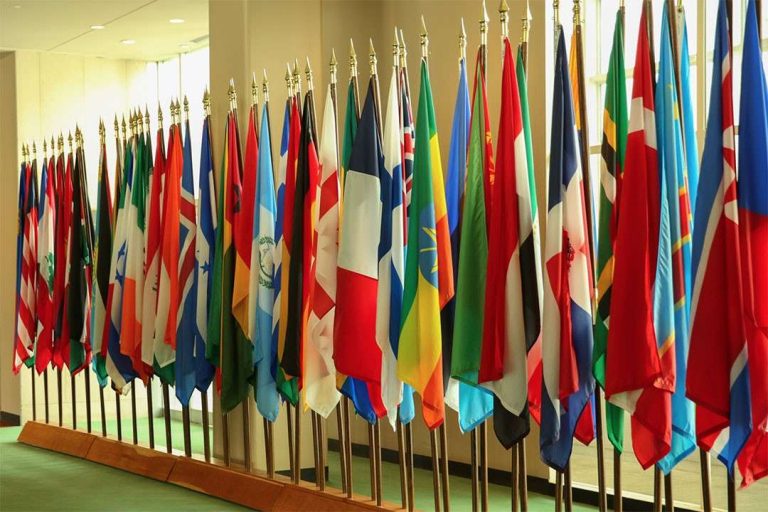In a rapidly changing world, the concept of inclusive economies has gained significant traction, underscoring the importance of equitable participation in economic growth. As countries strive to implement the Sustainable Development Goals (SDGs) set forth by the United Nations, initiatives such as https://sdg2030indonesia.org/ play a pivotal role in facilitating this transition in Indonesia. This platform serves as a nexus for stakeholders to collaborate, share insights, and mobilize resources towards achieving sustainable development that leaves no one behind. In this article, we will explore several key aspects of how this initiative contributes to building inclusive economies across Indonesia. Posted by https://sdg2030indonesia.org/
Understanding Inclusive Economies

Inclusive economies are characterized by equal access to opportunities for all individuals, regardless of their social or economic status. This section delves into the concepts and principles behind inclusive economies, highlighting why they are crucial for sustainable development.
Definition and Importance of Inclusive Economies
An inclusive economy is one where all individuals have the ability to participate fully in economic activities, which fosters innovation and growth. It is important because it ensures that marginalized communities can contribute to, and benefit from, economic progress. When people have access to well-paying jobs, education, and financial resources, they become active participants in shaping their futures.
The benefits of an inclusive economy extend beyond individual prosperity. When large segments of the population are engaged in the economy, it leads to increased productivity and consumption, which can stimulate overall economic growth. This is vital for Indonesia, which seeks to bolster its economy while addressing disparities that have historically limited development.
Barriers to Economic Inclusion
Despite the clear benefits of inclusive economies, numerous barriers impede individuals from participating fully in economic life. These barriers include socio-economic inequalities, lack of access to education, limited job opportunities, and systemic discrimination.
For example, women, ethnic minorities, and rural populations in Indonesia often face significant challenges in accessing quality education and employment. Addressing these barriers requires concerted efforts from both governmental and non-governmental organizations to create policies that promote equity and provide targeted support for underrepresented groups.
The Role of Policies in Encouraging Inclusivity
Government policies play a critical role in shaping economic inclusion. Policies that promote fair wages, enforce anti-discrimination laws, and provide social safety nets can have a profound impact on an individual’s ability to participate in the economy.
Moreover, investments in education and vocational training are crucial for preparing the workforce of tomorrow. By equipping individuals with the skills needed in a competitive job market, governments can foster a more inclusive economy that empowers all citizens to thrive.
The Contribution of SDG2030Indonesia.org

As a platform dedicated to advancing the Sustainable Development Goals within Indonesia, https://sdg2030indonesia.org/ plays an essential role in fostering inclusive economies. This section will examine how it facilitates collaboration, data sharing, and resource mobilization among diverse stakeholders.
Collaborative Framework for Stakeholders
One of the standout features of SDG2030Indonesia.org is its emphasis on collaboration among various stakeholders. The platform serves as a meeting place for government agencies, NGOs, businesses, and community leaders to come together and share ideas.
Through collaborative projects and initiatives, these stakeholders can tackle complex challenges related to economic inclusion. The collective expertise of diverse participants allows for innovative solutions that might not emerge in isolated environments. Furthermore, such collaborations help build trust and understanding among different sectors, fostering a sense of shared responsibility towards sustainable development.
Access to Data and Knowledge Sharing
In the realm of building inclusive economies, data is paramount. Accurate information on income distribution, employment rates, and educational attainment helps identify areas in need of intervention. SDG2030Indonesia.org acts as a repository of valuable data, allowing stakeholders to make informed decisions.
Knowledge sharing also plays a vital role in driving progress. The platform provides resources, case studies, and best practices that stakeholders can learn from and adapt to their local contexts. This wealth of information fosters innovation and encourages experimentation, enabling communities to develop tailored solutions to their unique challenges.
Mobilizing Financial Resources
Another critical aspect of building inclusive economies is the mobilization of financial resources. Many grassroots initiatives struggle to secure funding, hindering their ability to implement programs that promote economic inclusion. SDG2030Indonesia.org works to connect these initiatives with potential investors, donors, and funding sources.
By creating networks that facilitate access to financial resources, the platform supports the scaling of successful projects that enhance economic opportunities for marginalized groups. Increased funding enables community organizations to expand their reach and impact, ultimately contributing to a more inclusive economy overall.
Real-World Examples of Impactful Initiatives
Understanding how inclusivity manifests in practice is crucial for grasping the transformative power of platforms like SDG2030Indonesia.org. This section highlights real-world initiatives that have benefited from the support of this platform and showcases their positive outcomes.
Empowering Women Entrepreneurs
One of the standout initiatives supported by SDG2030Indonesia.org focuses on empowering women entrepreneurs across Indonesia. Through targeted training programs and mentorship opportunities, women gain the skills and confidence needed to start and grow their businesses.
These programs not only provide women with the tools to succeed economically but also foster a sense of community and solidarity among participants. As women become economically independent, they invest in their families and communities, leading to broader societal benefits.
Rural Development Projects
Another noteworthy initiative involves development projects aimed at improving infrastructure and access to resources in rural areas. By focusing on underserved regions, these projects seek to bridge the gap between urban and rural economies.
Investments in transportation, healthcare, and education help uplift entire communities, providing residents with the means to participate in economic activities. Through partnerships facilitated by SDG2030Indonesia.org, these rural development projects demonstrate the potential for inclusive growth when holistic approaches are employed.
Skill Development for Marginalized Groups
SDG2030Indonesia.org also prioritizes skill development initiatives that target marginalized groups, such as indigenous peoples and disabled individuals. By offering vocational training and job placement services tailored to their unique needs, these programs help break down barriers to employment.
The personal stories of individuals who have benefited from such programs highlight the transformative impact of economic inclusion. As these individuals secure stable jobs and contribute to their communities, they inspire others to pursue similar paths, creating a ripple effect of empowerment.
FAQs

What is an inclusive economy?
An inclusive economy is one where all individuals have equal opportunities to participate in economic activities. This includes access to education, job opportunities, and financial resources, ensuring that marginalized communities can contribute to and benefit from economic growth.
How does SDG2030Indonesia.org contribute to economic inclusion?
SDG2030Indonesia.org facilitates collaboration among diverse stakeholders, provides access to data and knowledge, and mobilizes financial resources to support initiatives aimed at fostering inclusive economies in Indonesia.
Why is it important to address barriers to economic inclusion?
Addressing barriers to economic inclusion is essential for promoting equity and social justice. When marginalized groups have access to economic opportunities, the overall economy benefits, leading to increased productivity, creativity, and growth.
Can individuals get involved in initiatives promoting economic inclusion?
Yes! Individuals can engage with local organizations, volunteer their time, or participate in advocacy efforts to support initiatives that promote economic inclusion. Platforms like SDG2030Indonesia.org provide opportunities for people to connect and contribute.
What is the long-term vision for inclusive economies in Indonesia?
The long-term vision for inclusive economies in Indonesia is to create a society where everyone has the opportunity to thrive economically, socially, and environmentally. This entails dismantling systemic barriers and fostering collaboration among stakeholders to achieve sustainable development goals.
Conclusion

As Indonesia strives towards achieving the Sustainable Development Goals, the role of platforms like https://sdg2030indonesia.org/ becomes increasingly vital in building inclusive economies. Through collaboration, data sharing, and resource mobilization, this initiative empowers stakeholders to work collectively in addressing the barriers that hinder economic participation. Real-world examples show that meaningful change is possible, illustrating the transformative potential of inclusive growth. As we move forward, commitment to fostering inclusivity will be key to unlocking the full potential of individuals and communities, paving the way for a more equitable future for all.

